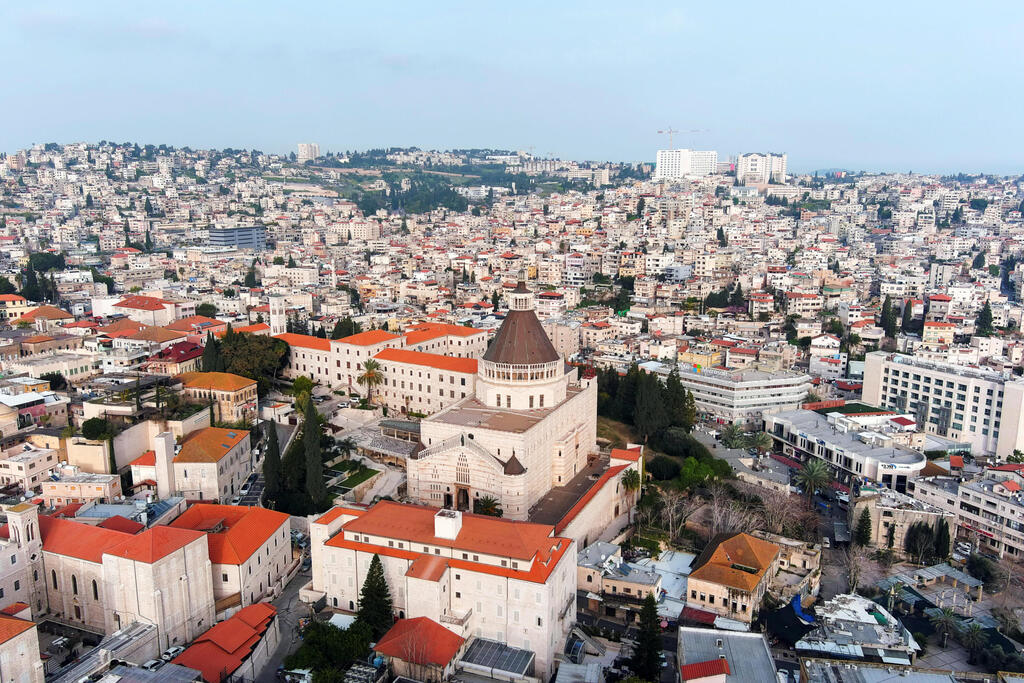Israel announced earlier this week it will soon build a high-tech park in Nazareth, a first of its kind in the Arab sector in the country.
The Economy and Industry Ministry said the 10-acre park will be built in Nazareth’s industrial zone, and will house industrial plants, with an emphasis on the high-tech industry. The ministry expects the park to supply 200 workplaces in the tech field to the area.
The declaration follows the approval last month of a five-year plan to increase the number of Israeli Arabs in the tech industry, which enjoys a budget of NIS 600 million, or $193.6 million. Only 2% of the Arab workforce currently is employed in the field, while 10% of Israel’s total workforce is employed in the industry.
The NIS 21 million, or $6.8 million in funding for the park is from Israel’s previous five-year plan for the Arab sector. With the year almost at an end, the government is rushing to allocate what remains of that plan’s budget.
Economy and Industry Minister Orna Barbivay said in a statement that “the high-tech park in Nazareth is another step toward the integration of hundreds of workers in a variety of jobs that will increase the chances of the area’s residents to find quality employment.”
Israeli Arab integration in the tech industry will contribute not only to the sector, but also to the local industry itself. More than 10,000 positions are currently waiting to be filled in the tech sector, a central element of Israel’s economy. It also aligns with Prime Minister Naftali Bennett’s stated aspiration to increase the number of Israelis working in tech by 50%. Notably, the average salary in the Israeli tech industry is more than double the average salary in the local market in its entirety.
Sami Saadi, co-CEO of Tsofen, an organization working to assist Arab integration into the Israeli tech scene, said the new tech park, as well as the new five-year plan, “in our eyes, it’s a good sign, a positive sign.”
Nazareth, located in the north of Israel, already can be considered the capital of Arab tech in Israel, with dozens of companies – including large multinationals – active in the city. Some of the companies are located in a privately built industrial zone constructed by Israeli businessman Stef Wertheimer. Saadi notes, however, that “this will be the first [industrial zone] built by the government.” He adds that, as opposed to Wertheimer’s compound, the new park will be dedicated solely to high tech.
Saadi has an optimistic view not only of the trend in government policy to encourage Israeli Arabs to work in high tech, but also of the impact that the park will have, which he believes will draw new companies to Nazareth and provide more job opportunities. He also notes that another park is planned for Kfar Qasim, an Arab town in Israel’s center, that is expected to provide employment for 3,000 residents of the town and area. “It will add significantly to the number of Arab employees in the industry, and will also bring Jewish engineers that will also be able to come to Nazareth and Kfar Qasim and work” in those parks, he said.
Sharif Sharif-Safadi, the director general of the Nazareth Municipality, said the decision aligns with the municipality’s vision “to transform the city… into the center of high tech in the country, at least for the Arab sector.” The municipality is working with several government ministries, as well as organizations such as Saadi’s Tsofen, to realize this aspiration.
3 View gallery


A picture taken with a drone shows an aerial view of the Basilica of the Annunciation in Nazareth in northern Israel
(Photo: Reuters)
Sharif-Safadi explains that many Arab students are now choosing to study topics connected to the tech world, and Nazareth wishes to remain relevant. “It is important to us to bring those companies here because that way you keep the younger generation” in the city, he says. Tech workers with tech salaries also support the city financially. Instead of leaving to work elsewhere, and then choosing to live elsewhere, a thriving local tech scene will keep them in the city, supporting the city’s growth and the local businesses.
Developing this branch of industry also will help Nazareth, best known as the place where Christianity’s Jesus spent his childhood and youth, to diversify. “We want to advertise Nazareth not only as a tourism city,” says Sharif-Safadi. While tourism has its place of honor as a traditionally central source of income, “we see now that there are new fields.” COVID-19 and its devastating effect on the tourism industry also lent its hand to highlight the need to develop other industries locally.
Both Sharif-Safadi and Saadi note the centrality of Nazareth. Developments in the city will not be limited to its borders. The city “is the center of the Arab sector,” says Sharif-Safadi. Saadi, in turn, has nicknamed Nazareth “the capital of Galilee,” and explains that it is in the center of the hundreds of thousands of people living in the surrounding villages. “It isn’t a municipal park, it’s a regional park,” he said.



